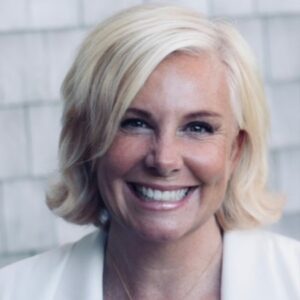Veranova is your next great decision
Discover new ways to advance your science with Veranova.
Contact usBy Victoria Brown, SVP and Chief Human Resources Officer at Veranova
No matter how you want to improve, you need to ask yourself two questions first:
1) Do you really want to do better?
2) Are you willing to feel the discomfort of trying new things that won’t work right away?
 You need to honestly answer “yes” to both of these questions in order to grow. Learning anything new is, by its nature, uncomfortable. So be prepared to try things that won’t work the first time, and to feel awkward and novice and messy. If you remain committed through all of that, you’ll get better.
You need to honestly answer “yes” to both of these questions in order to grow. Learning anything new is, by its nature, uncomfortable. So be prepared to try things that won’t work the first time, and to feel awkward and novice and messy. If you remain committed through all of that, you’ll get better.
It was the last race of track season. My daughter, 11 years old, was at the starting blocks waiting to run the 100-meter race.
“3… 2… 1…” The gun went off and she was gone in a flash. She ran around the track pushing faster and faster and then she thrusted towards the finish line to shave a few milliseconds from her time. She crossed the finish line —12,1 seconds — breathing hard. We cheered and gave her hugs.
But she wasn’t smiling.
12,1 seconds put her solidly in third position.
I had coaching ideas; ways I could help her get faster. I coach and counsel executives, have coached tennis and I was a ranked tennis player myself at her age. But I held back my feedback, hugged her again and told her I loved her. That’s what she needed in that moment.
Later though, I asked her how she felt about the race.
“I never get first.”
This is delicate terrain — coaching your own kids — and I chose my words carefully.
“I have two questions for you,” I said. “One: Do you want to do better?”
If the answer is “no,” then to attempt to coach would be a fool’s errand (a mistake I have made in the past).
“Yeah” she said.
“Here’s my second question: Are you willing to feel the discomfort of putting in more effort and trying new things that will feel weird and different and won’t work right away?”
She was silent for a while, and I let the silence just hang there. Silence is good. It’s the sound of thinking. And this was an important question for her to think about.
I believe — and my experience coaching many leaders in many different circumstances proves — that anyone can get better at anything. But in order to get better — and in order to be coached productively — you need to honestly answer “yes” to both those questions.
Maybe you want to be a more inspiring leader. Or connect more with others. Maybe you want to be more productive or more influential. Maybe you want to be a better communicator, a more impactful presenter, or a better listener. Maybe you want to lead more effectively, take more risks, or become a stronger manager.
Whatever it is, you can become better at it. But here’s the thing I know just as clearly as I know you can get better at anything: you will not get better if 1) you don’t want to and 2) you aren’t willing to feel the discomfort of doing things differently.
One senior leader I worked with became defensive when people gave him feedback or criticized his decisions. He wanted to get better, he told me, and he was willing to feel the discomfort. So I gave him very specific instructions : Meet with each member of your team and acknowledge that you have struggled with accepting feedback and tell them that you are committed to getting better. Then ask for feedback — especially ways you can be a better leader — and take notes. Don’t say anything other than “Thank you.”
“It took every restraint muscle in my body not to get into a conversation about their comments,” he told me afterwards. “Especially because I felt they misunderstood me at times. It was beyond uncomfortable. And I messed up a few times and had to apologize. But I did it — and they haven’t stopped talking about what a welcome change it’s been.”
Learning anything new is, by its nature, uncomfortable. You will need to act in ways that are unfamiliar. Take risks that are new. Try things that, in many cases, will be initially frustrating because they won’t work the first time. You are guaranteed to feel awkward. You will make mistakes. You may be embarrassed or even feel shame, especially if you are used to succeeding a lot —and many people I have worked with are used to succeeding a lot.
If you remain committed through all of that, you’ll get better. Asking those two questions is a prerequisite to growth.
I sat silently with my daughter for long enough that I thought she might have forgotten my question. Sitting in the discomfort of that moment, I realized that this was a new behavior for me too. I’m used to jumping in and trying to help her. Now, I was sincerely asking her whether she wanted my help. I was honestly OK with whatever answer she gave me — and it felt a little weird. But the more I settled into the silence, the more comfortable I got with just sitting with her — which I found I loved doing.
Finally, she spoke up. “I think so” she said, “but it’s the end of the season. Can we talk about it at the beginning of next season?”
“Sure,” I said, “I’ll ask you again then.”

Discover new ways to advance your science with Veranova.
Contact us